Top 10 FMCG Companies in India
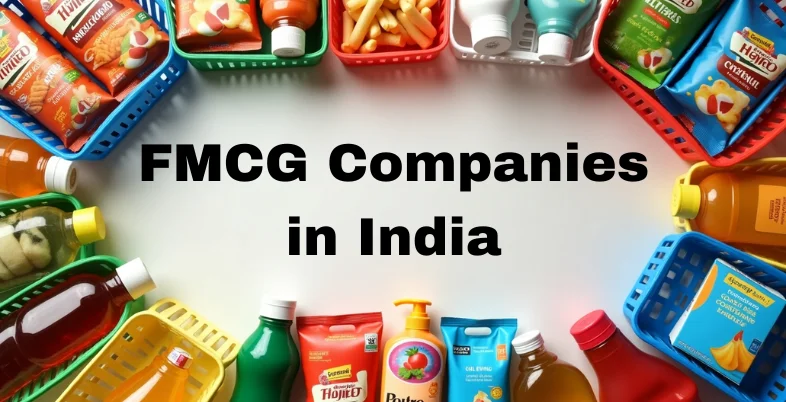
FMCG — or Fast-Moving Consumer Goods — are the everyday products we all rely on. Think toothpaste, snacks, shampoo, cooking oil, soap, and soft drinks. These are items we pick up from our local kirana stores, supermarkets, or online — often without a second thought — but behind them is a massive, fast-paced industry that touches nearly every household in India.
In fact, the FMCG sector is one of the biggest contributors to India’s economy. It plays a major role in both urban and rural markets, generating jobs and meeting essential needs. Around 10% of India’s GDP comes from this sector, and it provides employment to millions — especially in distribution, retail, and manufacturing.
Furthermore, the sector is expanding rapidly. With rising incomes, changing lifestyles, and greater internet penetration, more and more consumers are seeking convenience, quality, and variety. Experts forecast that the Indian FMCG market may double in size to $220 billion by 2025.
So why should you care about FMCG companies? Whether you’re an investor hunting for the next big brand, a student or professional exploring career options, or an entrepreneur curious about consumer trends, knowing who the key players are — and how they’re shaping our choices — can offer some real insight.
In this blog, we’ll explore the top FMCG companies in India, highlight emerging trends, and give you a closer look at what’s happening behind the products in your shopping bag.
What’s Driving India’s FMCG Boom?
India’s FMCG landscape is growing, but more important, it is changing. The way people shop, which products they like, and what they now expect from brands have all been revolutionized in the last few years. Let’s take a look at some of the major trends driving the industry today:
1. Health and Wellness Take Center Stage
More and more consumers are becoming conscious of what goes into their bodies. Whether it’s millet-based snacks, sugar-free alternatives, natural juices, or ayurvedic personal care — the demand for healthier, cleaner, and more “natural” products is on the rise. Brands like Dabur, Patanjali, and even new-age players like The Whole Truth or Slurrp Farm are riding this wave.
2. Eco-Friendly is the New Normal
Plastic-free packaging, refillable containers, biodegradable wrappers — consumers are no longer just buying a product; they’re also looking at how it impacts the planet. Established companies like HUL and ITC are investing in sustainable packaging, while smaller D2C brands are going even further with completely zero-waste solutions.
3. The D2C Boom
Why buy through a store when you can order directly from the brand? The Direct-to-Consumer (D2C) model is booming in India, thanks to social media and e-commerce platforms. Brands like Mamaearth, Wow Skin Science, and Minimalist started online, built loyal communities, and are now even challenging traditional giants on the shelves.
4. Local is the New Global
Regional and homegrown brands are no longer limited to small towns. In fact, many are becoming national favorites because they understand local tastes better. Think of regional snack brands going viral or ayurvedic and herbal brands becoming part of urban wellness routines. Consumers are increasingly proud to “buy Indian” — and brands that embrace local culture are winning big.
5. The Power of Digital and Influencers
Let’s face it — how many times have you purchased something purely because you saw it in a reel or YouTube video? Influencer marketing is no longer an afterthought in FMCG plans. From a skincare regimen on Instagram to a food blog review on YouTube, online voices are influencing purchases like never before. Add to that personalized ads, smart targeting, and instant checkout — and you’ve got an entirely new way people are discovering and engaging with brands.
List of Top 10 FMCG Companies in India
1. Hindustan Unilever Limited (HUL)
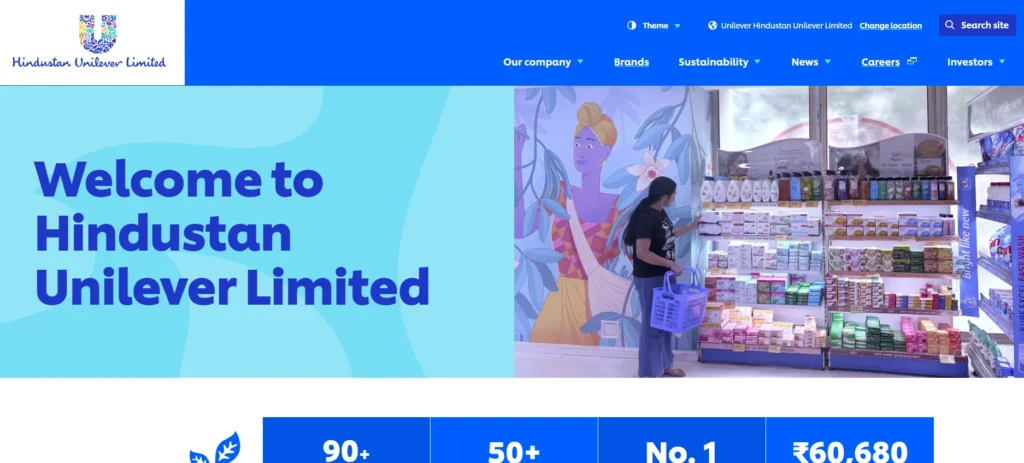
- Founded in: 1933
- CEO: Rohit Jawa
- Revenue: ₹627 billion (US$7.4 billion)
- Key products: Home Care: Laundry detergents (Surf Excel, Rin), dishwashing liquids (Vim), and household cleaners. Beauty & Wellbeing: Skincare (Ponds, Lakmé), haircare (Dove, Tresemmé), and wellness products.
- Website: https://www.hul.co.in/
Hindustan Unilever Limited (HUL) is one of the most trusted and influential FMCG companies in India, with a heritage of over 90 years. With this presence in nearly every Indian home, HUL offers a portfolio of everyday brands in personal care, home care, and food & beverages.
With a strong commitment to innovation, sustainability, and inclusive growth, the company continues to shape how millions of Indians live, eat, and care for themselves, while staying deeply rooted in the values of integrity, responsibility, and respect.
2. Colgate-Palmolive
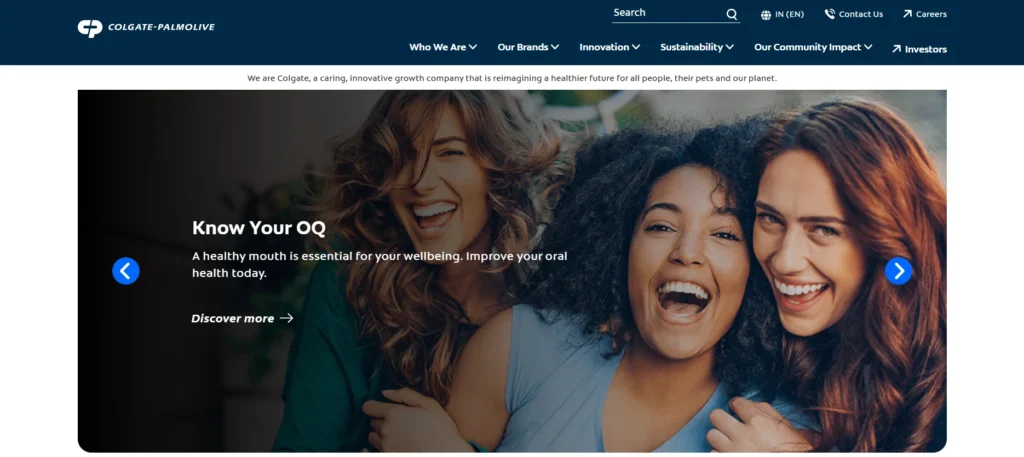
- Founder: William Colgate (Colgate), Burdett J. Johnson (Palmolive), William J. Peet and Robert Peet (Peet Brothers)
- Revenue: US$20.1 billion
- Key products: toothpastes, toothbrushes, toothpowder, oil pulling products and mouthwashes, under the Colgate brand, and a specialized range of personal care products under the Palmolive brand.
- Website: https://www.colgatepalmolive.co.in/
Colgate-Palmolive (India) has grown from humble beginnings—starting with hand-cart distribution of Colgate Dental Cream—into the country’s leader in oral care. Today, it offers a comprehensive range of products including toothpaste, toothbrushes, toothpowder, mouthwash under the Colgate brand, and personal care essentials under the Palmolive name.
With a revenue exceeding ₹4,800 crore and presence in over 6 million outlets, the company embodies its core values of Caring, Teamwork, and Continuous Improvement. It is also deeply committed to sustainability, diversity, and community health through programs like “Bright Smiles, Bright Futures.”Founded in: 1937
3. Marico Limited
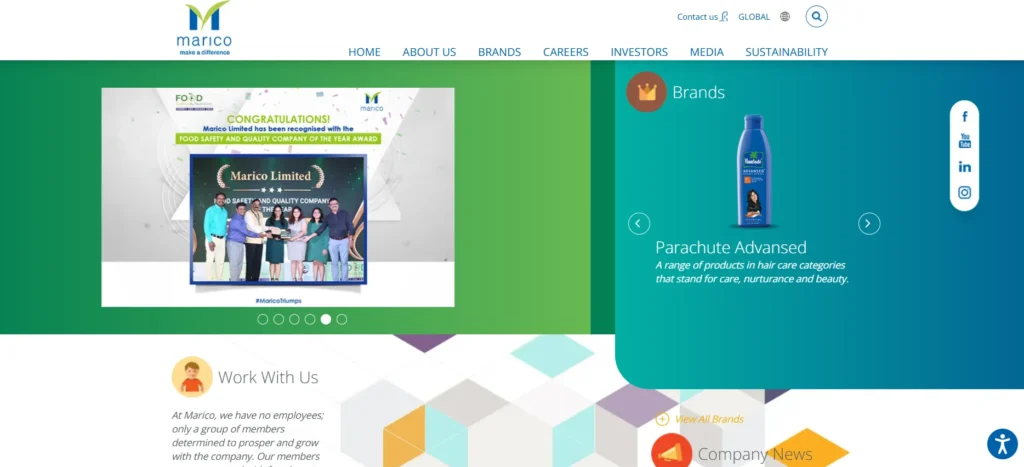
- Founded in: 1989
- Founder: Harsh Mariwala
- Revenue: ₹10,831 crore (US$1.3 billion)
- Key products: Parachute, Parachute Advanced, Saffola, Hair & Care, Nihar, Nihar Naturals, Livon, Set Wet, Mediker and Revive.
- Website: https://marico.com/global
Marico Limited is a leading Indian consumer goods company headquartered in Mumbai, with operations spanning over 25 countries across Asia and Africa. It specializes in the beauty, wellness, and healthy foods segments, with a strong portfolio that includes iconic brands such as Parachute, Saffola, Set Wet, Livon, Mediker, and Revive.
Since its incorporation in 1989, Marico has built a reputation for market leadership, innovation, and strong corporate governance. The company is also widely recognized for its commitment to sustainability and its people-centric work culture, consistently earning accolades as one of India’s best-managed and most trusted companies.
4. Johnson & Johnson
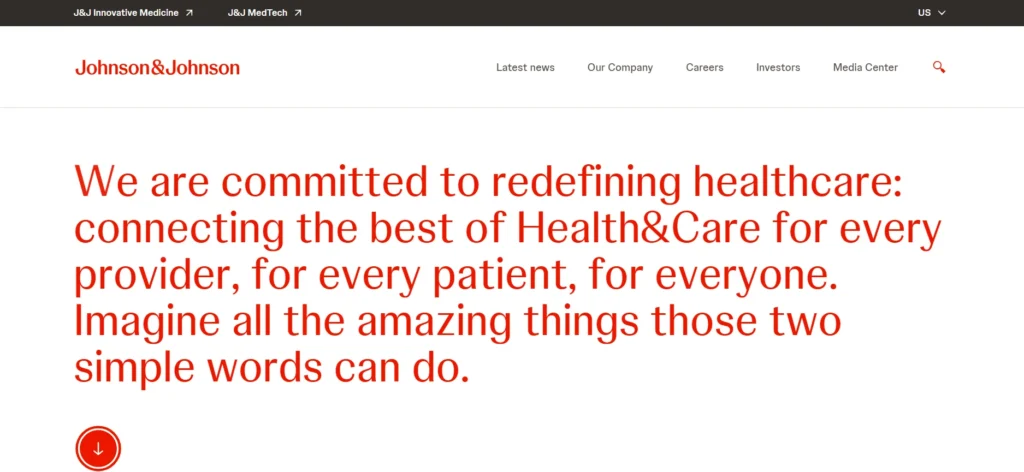
- Founded in: 1886
- Founder: Robert Wood Johnson I, James Wood Johnson, Edward Mead Johnson
- Revenue: US$88.82 billion
- Key products: Stelara, Tremfya, Darzalex, Xarelto, Invega (pharmaceuticals), DePuy Synthes, Ethicon, ACUVUE (medtech), and consumer favorites like Listerine, Johnson’s Baby, Tylenol, Neutrogena, Aveeno, Band-Aid, and Clean & Clear.
- Website: https://www.jnj.com/
Johnson & Johnson is a global healthcare leader that has been dedicated to enhancing well-being for nearly 140 years. With a mission rooted in its foundational “Credo,” the company focuses on putting people first—developing innovative medicines and medical devices that prevent and treat complex diseases.
Headquartered in New Brunswick, New Jersey, and supported by over 138,000 employees across the world, J&J combines science, compassion, and global reach to create smarter, less invasive healthcare solutions that improve quality of life for people at every stage.
Also Read: Dropshipping Suppliers India
5. ITC Limited
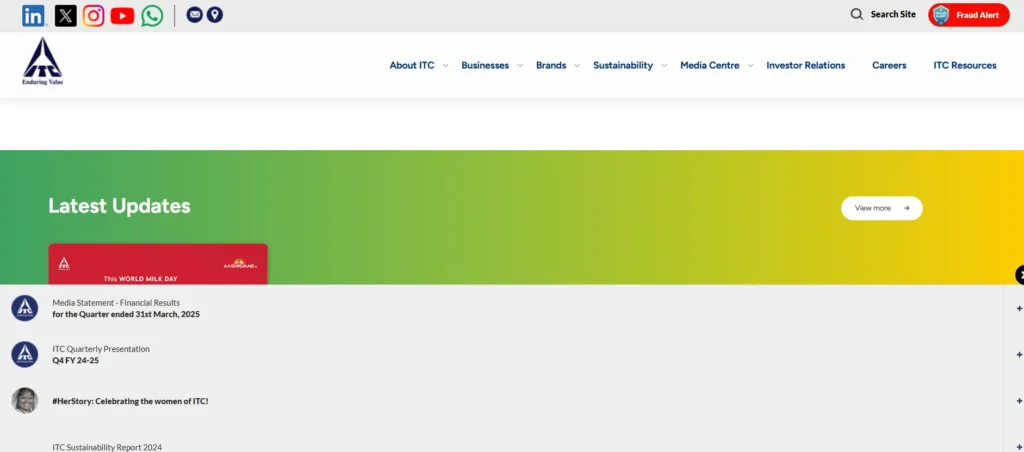
- Founded in: 1910
- Chairman and MD: Sanjiv Puri
- Revenue: ₹816.12 billion (US$9.7 billion)
- Key products: Aashirvaad (atta, ghee), Sunfeast (biscuits, noodles), Bingo! (snacks), B Natural (juices), Fabelle (chocolates), Fiama & Vivel (personal care), Savlon (hygiene), Engage (fragrances), Classmate (stationery), and popular cigarette brands like Gold Flake and Classic
- Website: https://www.itcportal.com/
ITC Limited is among India’s leading private sector enterprises and a prominent name among FMCG Companies in India, with a diversified business presence in FMCG, Hotels, Paperboards & Packaging, Agri-Business, and Information Technology.
Based out of Kolkata and with a rich history dating back to 1910, ITC has grown from a tobacco-focused venture to a multi-business conglomerate with iconic brands such as Aashirvaad, Sunfeast, Bingo!, Fiama, Vivel, and Classmate.
The company is widely recognized for its strong commitment to sustainability, rural empowerment, and inclusive growth—making it not just a market leader in many segments, but also a pioneer in responsible business practices in India.
6. Parle Agro
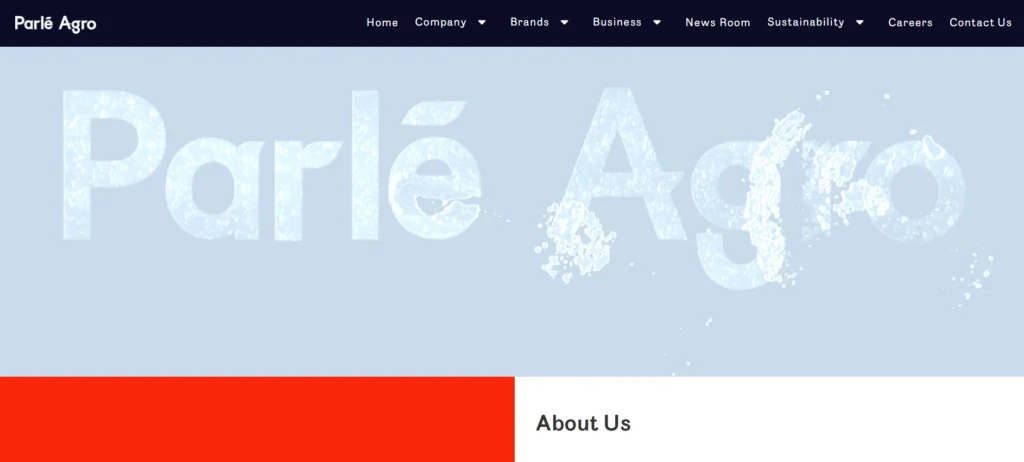
- Founded in: 1984
- CEO: Schauna Chauhan
- Revenue: ₹3,126 crore (US$370 million)
- Key products: Frooti (mango drink), Appy Fizz (sparkling apple juice), B-Fizz (malt-flavored drink), Smoodh (flavored milk), Bailley (packaged drinking water), Frio (fruit-based fizzy drinks), Dhishoom (jeera masala soda), and Bombay 99 (premium mixers)
- Website: https://www.parleagro.com/
Based in Mumbai, Parle Agro has been at the forefront of India’s beverage market since its inception in 1984. With a team of more than 5,500 and a vast network of 84 plants, it is India’s largest homegrown beverage major.
Synonymous with establishing new product categories, Parle Agro launched legendary beverages like Frooti (the first mango beverage in Tetra Pak) and Appy Fizz (the fizzing apple juice), as well as mass favorites like Bailley, Bailley Soda, B‑Fizz, Smoodh, Frio, Dhishoom, and Bombay 99. Driven by a spirit of innovation, the company retails its drinks in more than 2 million outlets in India and has a presence in over 50 nations
7. Godrej Consumer Products Limited (GCPL)

- Founded in: 2001
- CEO: Sudhir Sitapati
- Revenue: ₹14,680 crore (US$1.7 billion)
- Key products: Goodknight (mosquito repellents), HIT (insecticides), Cinthol (soaps, grooming), Godrej Expert (hair color), Godrej No.1 (bathing soap), and Godrej Aer (air fresheners).
- Website: https://www.godrejcp.com/
Godrej Consumer Products Limited (GCPL) is a strong FMCG player with a wide presence in emerging markets, supported by over 125 years of heritage from the Godrej Group. With its headquarters in Mumbai, GCPL reaches nearly 1.4 billion consumers in over 90 countries.
The company has leadership status in India’s household insecticides, air care, hair color, and personal wash businesses and strong positions in markets such as Southeast Asia, Africa, and Latin America. With Goodknight, Cinthol, HIT, and Godrej aer among its iconic brands, GCPL is recognized for combining innovation with sustainability, social responsibility, and purpose-led growth.
8. Tata Consumer Products
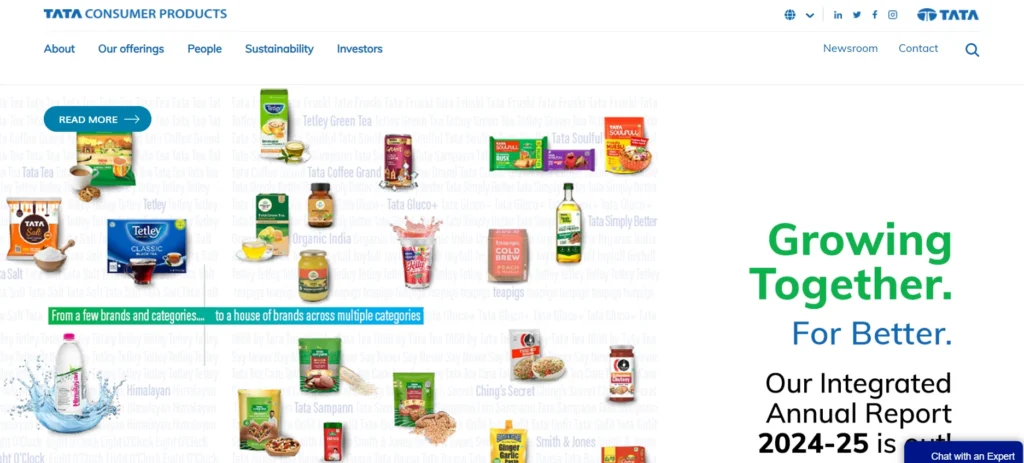
- Founded in: 1964
- CEO: Sunil D’Souza
- Revenue: ₹17,811 crore (US$2.1 billion)
- Key products: Tata Tea, Tetley (tea), Tata Salt, Tata Sampann (pulses, spices), Tata Soulfull (millets, breakfast foods), Himalayan (mineral water), and Eight O’Clock Coffee.
- Website: https://www.tataconsumer.com/
Tata Consumer Products is one of the leading FMCG Companies in India, serving as the food and beverage division of the Tata Group, infusing strong heritage with a vision for sustainable, healthier living. With headquarters in Mumbai, the company unites iconic brands such as Tata Tea, Tetley, Tata Salt, Eight O’Clock Coffee, Himalayan Water, and more recent launches such as Tata Sampann and Tata Soulfull.
Operational across more than 40 nations and having a strong presence across Indian homes, Tata Consumer Products is dedicated to feeding life with trusted quality, innovation, and a purpose-driven mindset that prioritizes people and the planet.
9. Amul
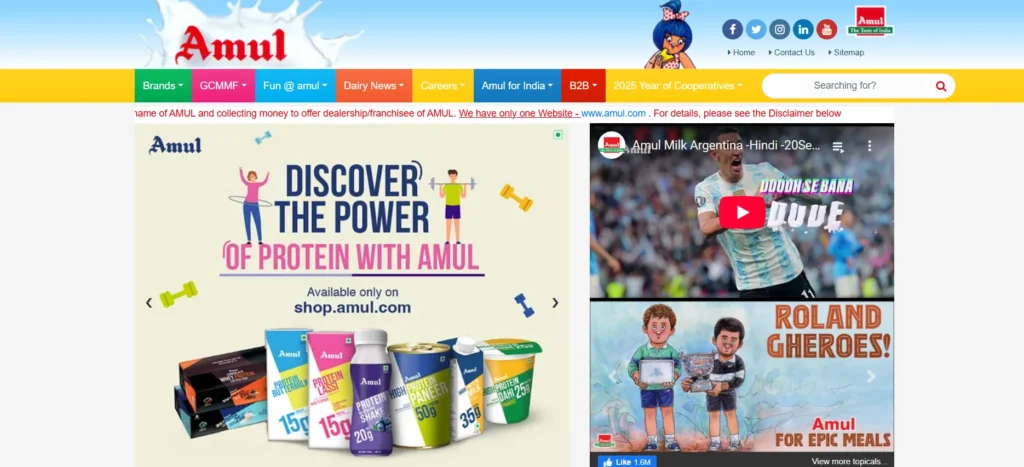
- Founded in: 1946
- Founder: Tribhuvandas Patel
- Revenue: ₹90,000 crore (US$11 billion)
- Key products: milk, butter, cheese, ghee, ice cream, paneer, flavored milk, chocolates, lassi, yogurt, and whey protein-based beverages and snacks.
- Website: https://www.amul.com/
Amul, which stands for the Gujarat Cooperative Milk Marketing Federation (GCMMF), is India’s most iconic and trusted dairy brand. Established in 1946 with its headquarters in Anand, Gujarat, Amul played a pivotal role in India’s White Revolution that made the nation self-sufficient in milk production.
Run as a cooperative owned by the entire milk rising of millions of dairy farmers, Amul produces a variety of products such as milk, butter, cheese, ghee, yogurt, ice cream, chocolates, beverages, and more. With consistent quality, reasonable price, and effective advertisements, Amul has evolved as an icon of nutrition, empowerment of rural India, and national pride in India.
10. Britannia Industries Limited
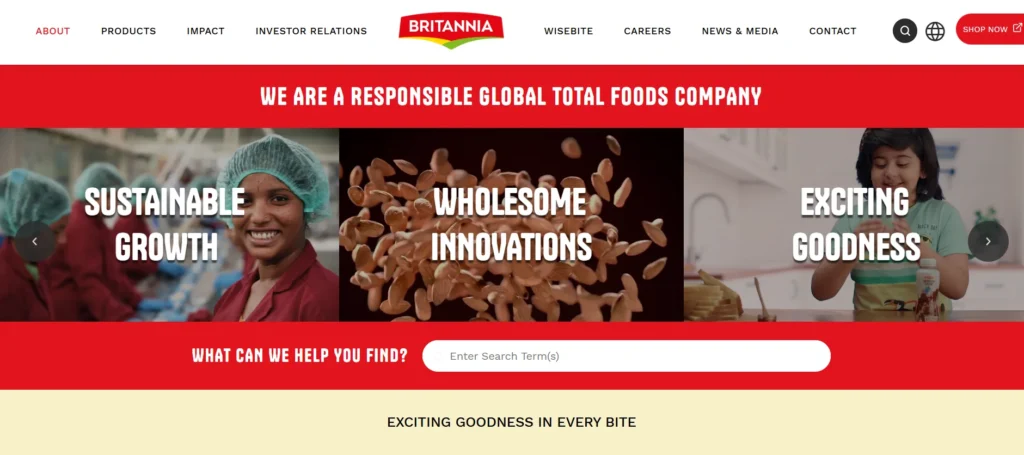
- Founded in: 1892
- CEO: Rajneet Kohli
- Revenue: ₹18,169 crore (US$2.1 billion)
- Key products: biscuits (like Good Day, Marie Gold, Treat), bread, cakes, rusk, dairy products (cheese, milk, dahi), and snack bars under brands like NutriChoice and Little Debbie
- Website: https://www.britannia.co.in/
Britannia Industries Limited is India’s most prestigious and veteran food firm with a legacy of more than 100 years of delivering high-quality bakery and dairy products. Bengaluru is the headquarters of the company, which is a household name across the country for products such as biscuits, cakes, rusk, dairy products, and bread.
With popular brands like Good Day, Marie Gold, Milk Bikis, Little Debbie, Treat, and NutriChoice, Britannia touches the lives of millions of consumers in India and exports to more than 60 countries. Dedicating itself to innovation, health, and taste, Britannia remains a driving force in India’s changing food landscape, blending tradition with contemporary consumer demands.
Conclusion
India’s FMCG sector is a vibrant mix of tradition, innovation, and scale. The top 10 FMCG companies in India we explored are not just business giants — they’re deeply woven into the fabric of everyday life, influencing how millions of people eat, clean, shop, and care for themselves. What sets these companies apart is their ability to stay relevant in a rapidly changing market.
Whether it’s adapting to digital-first consumers, launching eco-friendly initiatives, or tapping into regional tastes, these brands are constantly evolving to meet new demands. But the story doesn’t end here. With rising incomes, rural growth, and a wave of health-conscious, digitally savvy consumers, the FMCG space in India is ripe for even more disruption and innovation.
New-age D2C brands are already challenging legacy players, and sustainability is no longer optional — it’s expected. As a consumer, investor, job seeker, or entrepreneur, keeping an eye on these FMCG leaders offers more than just brand trivia — it gives you a front-row seat to one of India’s most dynamic and future-ready industries.
FAQs
What is a D2C brand in FMCG?
D2C (Direct-to-Consumer) brands sell their products directly to customers through online platforms, without relying on traditional retail channels. Examples in India include Mamaearth, Minimalist, and The Whole Truth.
Are there opportunities for startups in the FMCG sector?
Yes, the rise of D2C brands and niche categories (like plant-based foods, clean beauty, or regional snacks) offers huge opportunities for startups. Lower barriers to entry via digital marketing and e-commerce platforms have made it easier for new players to gain traction.
Why is the FMCG sector important for India?
FMCG is a significant contributor to India’s economy. FMCG contributes nearly 10% to the country’s GDP, generates massive employment, supports development, and caters to the essential daily needs of over a billion consumers.
What are the largest challenges that FMCG companies face in India?
Key challenges include intense competition, price sensitivity, rising raw material costs, rural logistics, and adapting to rapidly shifting consumer preferences.
What skills are required to join the FMCG sector?
Popular skills include brand management, digital marketing, consumer analytics, sales strategy, supply chain optimization, and product development.